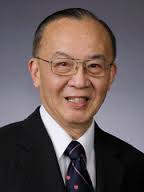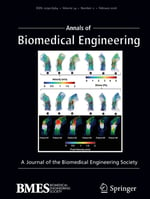View the 2026 award rubric here.
Shu Chien Achievement Award
Award Applications Now Closed
Extended Deadline to Apply: July 25, 2025

The BMES CMBE Shu Chien Achievement Award is the most prestigious honor bestowed by the BMES Cellular and Molecular Bioengineering (CMBE) Special Interest Group (SIG). This award recognizes an individual who has made exceptional contributions to the field of cellular and molecular bioengineering. These contributions include groundbreaking scientific advances, the development of programs to support this emerging field, the mentoring and training of the next generation of scientists, and the advancement of diversity and inclusivity.
Professor Shu Chien, MD, PhD, past President of the BMES, AIMBE, APS, and FASEB, is internationally recognized as one of the foremost pioneers and educators in biomedical engineering. His vision and leadership in integrating biomedical engineering with cardiovascular physiology and molecular cell biology have greatly impacted the field of cellular and molecular bioengineering.
2026 SHU CHIEN ACHIEVEMENT AWARD APPLICATIONS NOW CLOSED
For questions, please contact huttone@bmes.org
Application Information
-
Application Requirements
The applicant and at least 1 letter writer (nominator or other support letter) must be a CMBE member in good standing.
Awards recipient must be a BMES member in good standing as well as a current member of the CMBE-SIG. Membership may be obtained to apply for the award. Submissions should include the following:
1. A nomination letter, no more than two pages, that describes the nominee's contributions in the following four categories:
a. Pioneering accomplishments in basic and/or translational research in cellular and molecular bioengineering
b. Key leadership/role that has impacted the cellular and molecular bioengineering field (e.g., research center or consortia, educational programs, leadership in professional societies, etc).
c. Excellence in mentoring of students/trainees
d. Demonstrated activity that has advanced the engagement with distinct populations
2. The nominee's full CV
3. Two letters of support that specifically address the categories described in item No. 1.ALL SUPPORTING DOCUMENTATION MUST BE SUBMITTED AS A SINGLE PDF USING THIS FORM by July 15, 2025.
-
Award Rubric
-
Award and Honorarium
The recipient will receive a commemorative plaque, complimentary registration for the meeting, an honorarium of $1,000, and will be invited to deliver a lecture at the 2026 BMES CMBE Annual Conference.

BMES CMBE Shu Chien Scientific Achievement Award Recipients
2026 - David Mooney, Ph.D., Harvard School of Engineering and Applied Sciences, Wyss Institute
2025 - Chris Chen, Ph.D., Boston University
2024 – Nicholas Peppas, Ph.D., University of Texas at Austin
2023 – Cato T. Laurencin, Ph.D., University of Connecticut
2022 – Valerie Weaver, Ph.D., University of California, San Francisco
2021 – Dennis Discher, Ph.D., University of Pennsylvania
2020 – Roger D. Kamm, Ph.D., MIT
2019 – Gordana Vunjak-Novakovic, Ph.D., Columbia University
2018 – Michael L. Shuler, Ph.D., Cornell University
2017 – Antonios G. Mikos, Ph.D., Rice University
2016 – Donald E. Ingber, M.D., Ph.D., Harvard University
2015 – Douglas A. Lauffenburger, Ph.D., MIT



